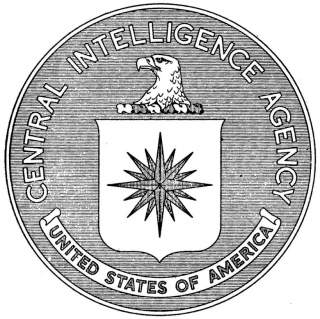Better Intel: Making Sense of the U.S. Intelligence Community's Creativity Dilemma
There are potential ways to expand the opportunities for more creative approaches to intelligence analysis.
More creative intelligence will require greater creativity in policy making—possibly even different structures. The same linear logic or underappreciation of uncertainty that professionals like Kerbel complain about in the U.S. Intelligence Community exists among the other foreign and national-security professionals. And the latter are ones who ultimately must understand, accept and use the intelligence developed by the U.S. intelligence services. The coordination of intelligence and policy means that practitioners must communicate in familiar terms, and the language of complexity is not readily translatable into decision memos and action.
The U.S. Intelligence Community functions the way it does for a variety of reasons, and any ideas to shift its functioning in fundamental ways require attention to the people, the institutions, and the connectivity with decision makers. So here are two potential ways to expand the opportunities for more creative approaches to analysis:
Professional Creativity Requires Time:
Just as great writers with eccentric writing styles often have superb command of the English language, intelligence analysts need to have a clear understanding of the rules of intelligence within the U.S. Government and dealing with policy makers. These relate to—among many other things—styles of expression, condensing information and delivering information geared to the decisions policy makers face. Creative analysts with operational and political acumen to be effective do not enter the intelligence service ready-made, so the U.S. Intelligence Community would have to allow more analytic slack by not rushing analysts onto the line and allowing other analysts to step back. Programs like the ODNI Exceptional Analyst Program are too small and not well-enough integrated into career progression to have agency-wide effects.
Developing a Public Presence:
Many years ago, senior analysts helped shape public discourse by contributing to academic publications and participating as equals, rather than wallflowers in conferences. It may be time to resurrect that practice with official encouragement, rather than discouragement. Writing forces the author to engage with evidence and ideas, and writing outside the strict requirements of intelligence publications requires a different mode of thinking. And it allows an analyst the freedom to explore an idea the way they think it should be written. Moreover, the output could help make some analysts a known quantity among the revolving door between government, the private sector and think tanks. Encouraging this external activity also may serve the Intelligence Community’s interest when public appreciation of an issue is at odds with the internal U.S. Government understanding by preventing officials from coming into government and being blindsided.
Reemphasizing Research:
From former national intelligence officers to this author’s conversations with a former deputy director of intelligence, a common lament about the current state of U.S. intelligence analysis is a lack of well-developed research skills. Research and creativity are not obviously connected; however, research serves two purposes. The first is tracking down intuitions. Creativity does not end with insight, but with the ability to find the supporting details that make the original intuition persuasive to both peers and those expected to act off of it. The second is to build a repository of knowledge within analysts’ minds. The more organized knowledge a person possesses, the easier it is to make meaningful, intuitive leaps. Technical aids are a support, but not a replacement for honing the human mind, because analysts still must operate in a face-to-face environment and be able to brief and defend their ideas from their feet.
Peter Mattis is a Fellow in the Jamestown Foundation’s China Program and a PhD student in Politics and International Studies at the University of Cambridge. He is currently a visiting scholar at the Institute of International Relations at National Cheng-chi University in Taipei.

